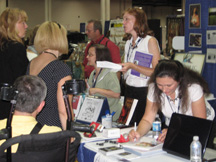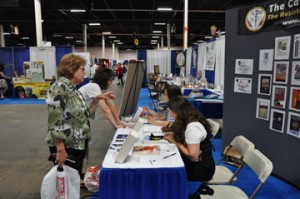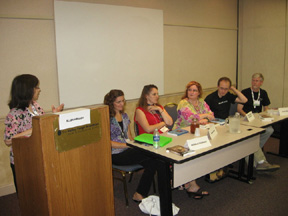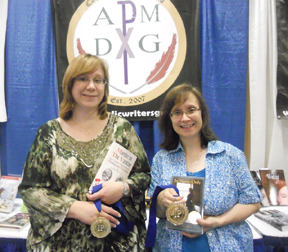The Value of Live Conferences and Long-Lasting Friendships
“There is nothing on this earth more to be prized than true friendship.” St. Thomas Aquinas
When I self-published my first novel seven years ago, I joined a local secular writers’ group but never quite felt a connection. It was only through the Catholic Writers Online (Yahoo group) that I discovered a new group called the Catholic Writers Guild in 2007. Initially, being a member consisted of receiving a newsletter and participating in Sunday chats. This grew to an online conference, then an opportunity to attend the Catholic Marketing Network Trade Show in 2008.
At the time, there was no accompanying conference, just interaction with fellow CWG members and Trade Show attendees at the CWG booth. In the beginning, I was nervous at the prospect of meeting such diverse and accomplished writers. However, I soon learned there was no reason to be nervous; they welcomed me with open arms and treated me as one of their own.The next year, 2009, was the first year for the Catholic Writers Conference which was held in conjunction with the 2009 Catholic Marketing Network Trade Show in New Jersey. I learned a lot, met more talented Catholic writers and made more friendships. There were opportunities for book signings (photo below), as well as great talks by Regina Doman and Fr. Frank Pavone.
For me, the highlight of the 2010 Catholic Writers Conference Live was acting as moderator for the Catholic Fiction panel (third photo below).
On the panel were L to R, Michelle Buckman (the 2011 CALA award-winning author of Rachel’s Contrition,) Regina Doman (author of the Fairy Tale Novels and the 2011 CALA award winner, Alex O’Donnell and the 40 Cyber Thieves), Elena Maria Vidal (author of Trianon and other historical novels), Christian M. Frank/John Doman (author of JP II High books) and John Desjarlais (author of Bleeder and Viper). That was probably the most fun I’ve had in years. I looked a little dwarfed behind the podium, but I’m sure my loud voice overcompensated for what I lack in the height department.In 2011, CWG president (Ann Lewis) and vice president (me) had an opportunity to show off our IPPY Gold medals (photo below).
There were talks on blogging, Catholic fiction and marketing. My talk on “Marketing the Self-Published Book” was so well-received that I’ll be giving it again this year at the 2012 conference.The Catholic Writers Conference is a great place to learn about writing, marketing and our faith. But when it comes right down to it, the best thing about the Catholic Writers Guild and the live conferences are the friendships. I have made long-lasting and deep friendships based on mutual faith, charity and respect. When I ask for a review of my latest book, my friends in the CWG are there. When I ask for prayers, they respond with great charity.
Whether you’re a self-published author or a traditionally published author…whether you write for a living or as a hobby…whether you write non-fiction or fiction…the Catholic Writers Conference Live is an outstanding opportunity to learn, to network and to gain deep friendships.
This year, the Catholic Writers Conference Live will be held on August 29-31 in Arlington, Texas. I’ll be running the CWG booth, giving two talks (one on Marketing the Self-Published Book and one on Fiction and the New Evangelization). Most importantly, I’ll be reconnecting with old friends and making new ones.
I hope to see you there!
Text and Photos Copyright 2012 Ellen Gable Hrkach











